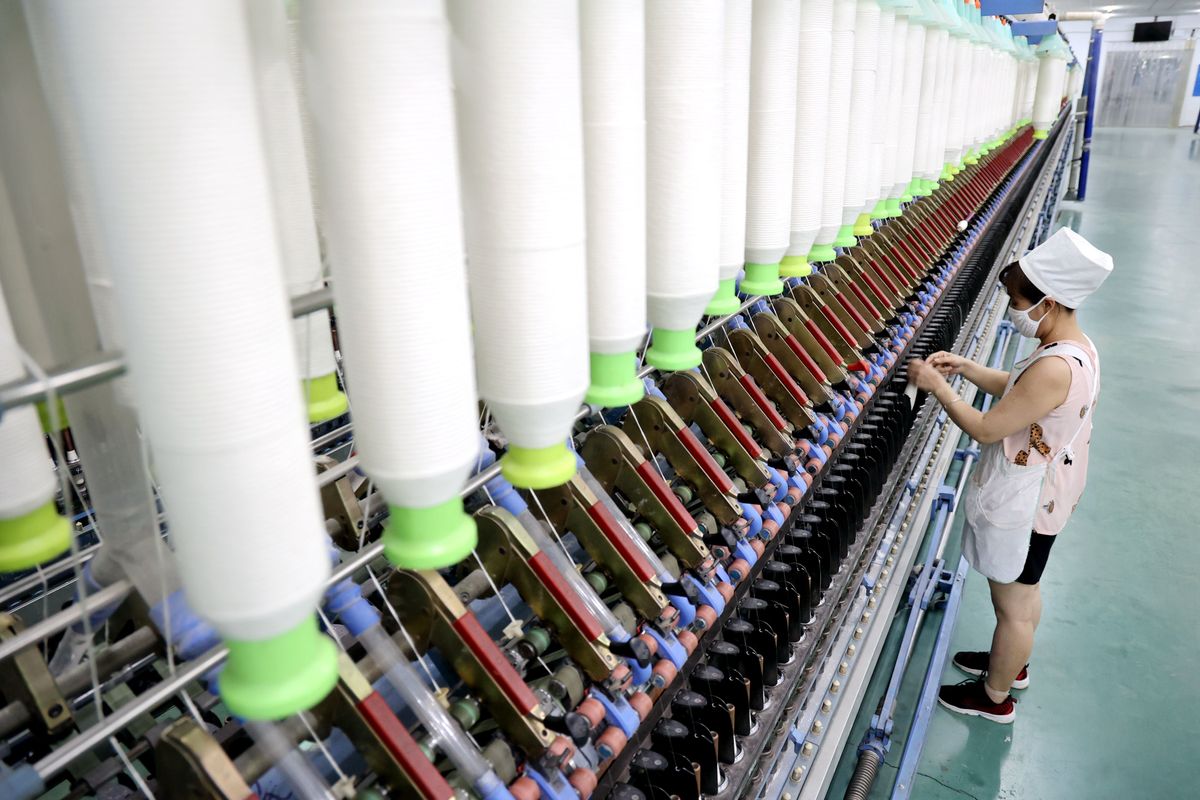Times are tough in the world’s second largest economy. After several years of on-and-off-again pandemic lockdowns, China’s economic rebound remains limp. Even the notoriously tight-lipped politburo of the Chinese Communist Party recently nodded to the economy’s “tortuous progress.”
While much of the rest of the world contends with inflationary pressures, many economists say China is tussling with the inverse phenomenon: deflation.
What’s deflation, and what are the implications at home and abroad?
China’s economy, worth a whopping $18 trillion, is a dynamic one, and so multiple factors are contributing to its current anemia.
Beijing’s flirtation with deflation is linked, in large part, to the plunging cost of goods and services due to weak demand at home. Simply put: Chinese consumers are spending less, which is putting downward pressure on prices. A steep dip in imports last month – 12.4% year-on-year – signals that demand remains sluggish six months after President Xi Jinping ditched the growth-stifling zero-COVID policy.
But aren’t low prices a good thing?
Not quite. Falling prices do not necessarily mean that Chinese consumers are buying more stuff at a cheaper price. In fact, many economists say that deflation often sparks deep anxiety about the state of the economy, causing consumers to cut back on spending in order to stash more away in a rainy day fund.
Said another way: Perception of the strength of the economy is almost as important as economic growth itself. As a narrative takes hold – at home and abroad – that China could be entering deflation territory, many Chinese are concerned with taking on new debt, causing a downturn in investments.
What’s more, deflation can eat into companies’ bottom lines, leading to belt-tightening and job losses. The latter is a particularly big concern as youth unemployment in China continues to reach new records. In fact, in a sign of how bad things have gotten for young Chinese entering the workforce, one university president recently advised graduating Chinese students not to be picky about which jobs they accept. The world is my oyster? Not so much in Xi’s China.
Why is this happening now?
Global lockdowns and work-from-home policies were great news for China, dubbed the world's factory. But as American and European consumer trends have rapidly evolved (out with the expensive ergonomic chair, in with the trip to Burning Man!) Beijing has been left with a bloated manufacturing sector and too much inventory. The hope was that domestic demand for stuff would make up the difference, but that hasn’t been the case due to a number of factors.
One key issue impacting consumer behavior is the tumult of the real estate sector. For the most part, housing sales have been depressed since the early days of the pandemic. As we recently wrote, the collapse of real estate giant Evergrande in late 2021 freaked out both developers and buyers, so now the former can't get loans to finance projects, and many have been forced to default on their debt, leaving projects incomplete.
What’s more, the oversupply of houses in many cities as a result of demographic shifts (the Chinese are not making enough babies!) has also put downward pressure on home prices.
The world is watching. Dwindling demand in China, the world’s largest importer of food and fuel, is bad news for the many countries that rely on China to buy what they’re selling.
For example, commodity-exporting countries, like steel giants Australia and Brazil, are particularly sensitive to China’s infrastructure slump, while tech-exporting countries – like Taiwan and South Korea – are feeling the burn of China’s retail and manufacturing contraction. (China’s goods imports dropped 6.7% year-on-year in the first five months of this year.)
What’s the government doing about it?
The People’s Bank of China cut interest rates back in June in a bid to stimulate growth and has also released small stimulus packages to help boost spending and consumer confidence – though not nearly enough to move the needle. In the meantime, true to form, the CCP is tapping into its culture of fear, warning economists that they better stay mum about negative economic trends.- Ian Explains: Why China’s era of high growth is over - GZERO Media ›
- China's COVID lockdowns made its people depressed and hurt its economy - GZERO Media ›
- Podcast: China's great economic slowdown - GZERO Media ›
- China’s economy in trouble - GZERO Media ›
- Davos 2024: China, AI & key topics dominating at the World Economic Forum ›
- China's economic slowdown is dragging down the rest of the world - GZERO Media ›
- Podcast: Trouble ahead: The top global risks of 2024 - GZERO Media ›
- Are the US and China frenemies now? Perspective from Nicholas Burns, US Ambassador to China - GZERO Media ›






